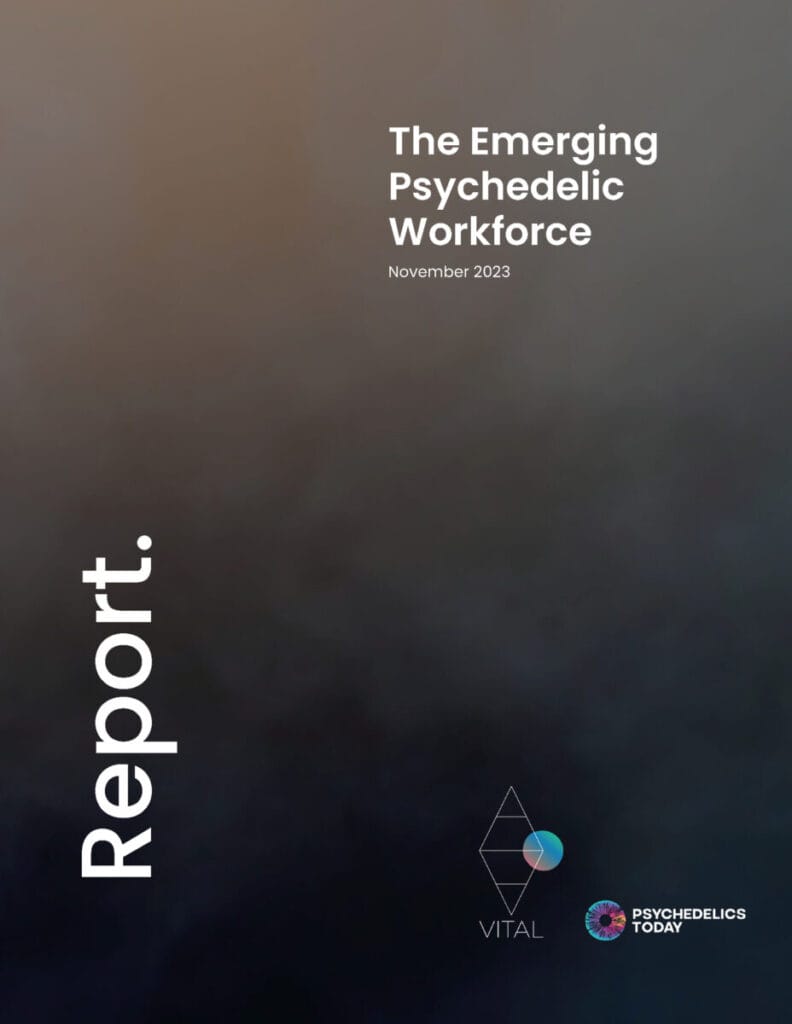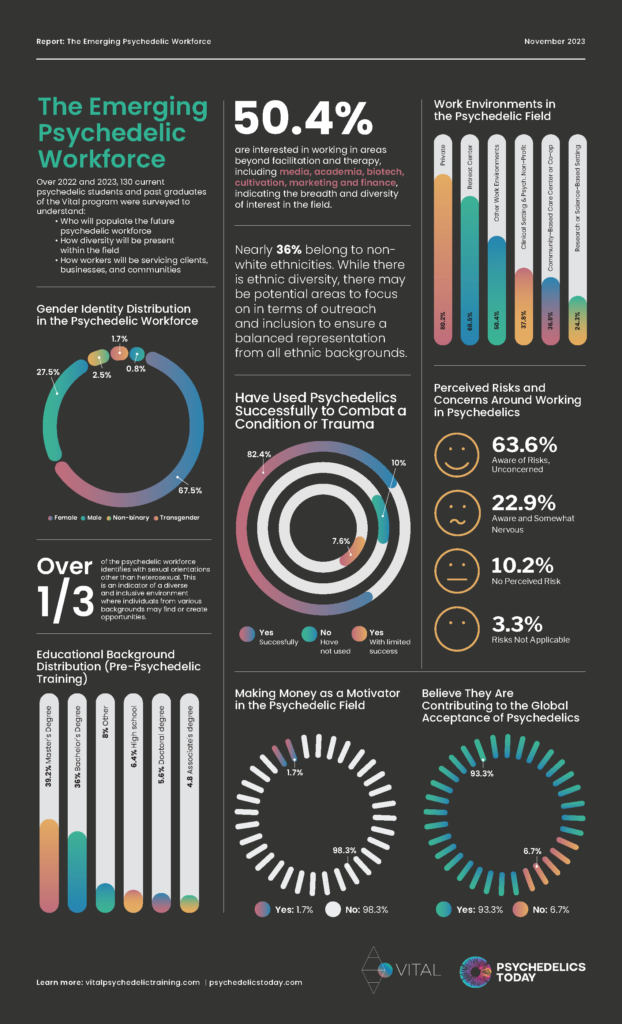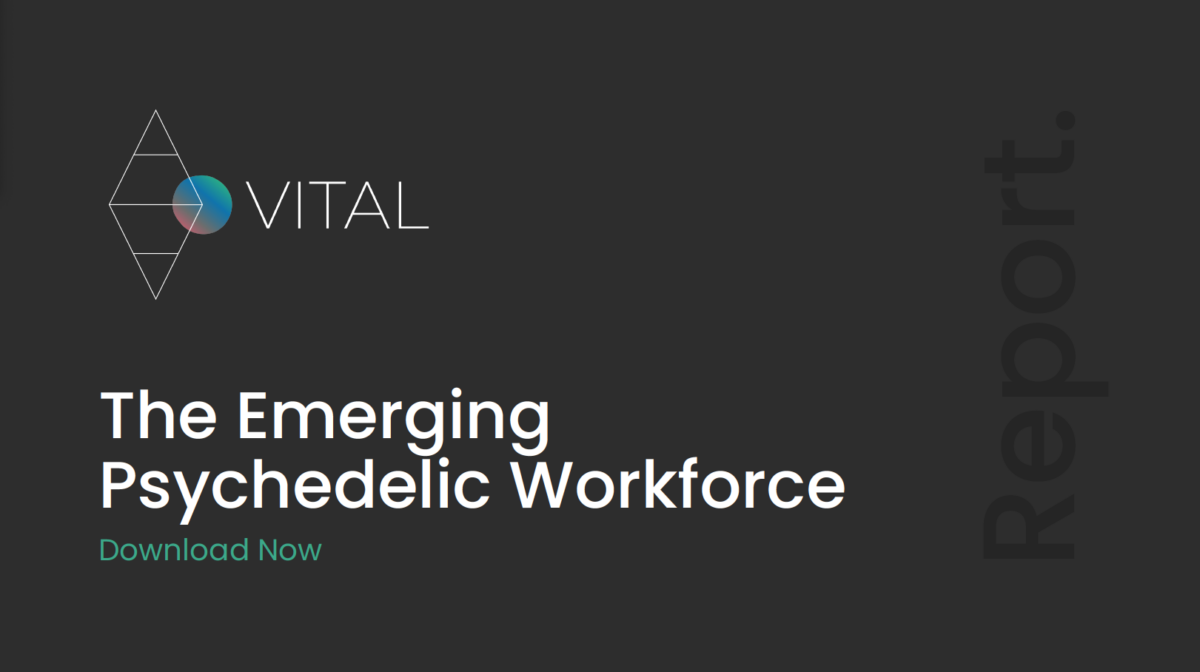The most culturally significant shift around psychedelics since the 1960s is currently underway. As promising research emerges, societal attitudes shift, and governments around the globe reform drug legislation, psychedelics are poised to radically change healthcare and wellness – forever.
In recent years, many individuals have chosen to pursue a new career – or adapt a current career or practice – to include psychedelics in some form. Specialized training programs like Vital are preparing professionals to enter or enrich the workforce with psychedelic awareness, and support the healing of the world in a time of an unprecedented global mental health crisis.
And as the world watches, many are asking what the future holds for this field, what access to psychedelics will look like, how services will be delivered, and by whom.
But currently, the data on the psychedelic workforce is limited. So over 2022 and 2023, 130 current psychedelic students and past graduates of the Vital program were surveyed to understand:
- Who will populate the future psychedelic workforce
- How diversity will be present within the field
- How workers will be servicing clients, businesses, and communities
The results were analyzed and packaged into a new free report, titled The Emerging Psychedelic Workforce. *Scroll down to download*

Note: While Psychedelics Today acknowledges this sample of respondents does not fully capture the global sum of those engaged in psychedelic work today – including many Indigenous, ceremonial, or underground contexts of psychedelic work – we propose the findings as a reasonable representation of the future global psychedelic workforce of trained individuals.
As a fully remote global training program with many scholarship recipients, underground acceptance, and no advanced licensure requirements, Vital’s student body is highly diverse, and populated by professionals who will service a broad spectrum of communities, in a wide variety of capacities – not limited to psychedelic facilitation.
We offer these findings as a predictive snapshot of the trained psychedelic workforce, who they are, their motivations, and how they will work in the field.
Sample Insights:

- Working with Marginalized Groups: 81.4% plan to work or are working with unspecified marginalized groups. This points towards a broad understanding and intention to cater to diverse and often underserved communities.
- Non-Facilitation Specialties: 50.4% are interested in working in areas beyond facilitation and therapy, including media, academia, biotech, cultivation, marketing, and finance, indicating the breadth and diversity of interest in the field.
- Incorporating into an Existing Career: 47% of students are not switching careers. Instead, they are incorporating psychedelics and altered states into their current career for the first time. This might include therapists or holistic practitioners seeking to integrate these new tools and modalities into their practice.
- Making Money Isn’t the Goal: A staggering 98.3% of respondents indicate that making a lot of money is not their primary motivation to enter the field.
- Aware of Risks but Unconcerned: 63.6% acknowledge potential personal and professional risks of arrest, social, family, or license implications, but are undeterred and willing to work in the field regardless.
Download Your Complimentary Copy
Interested in reading the full report and a shareable infographic? Simply enter your information below, and we’ll send it right to your inbox.



